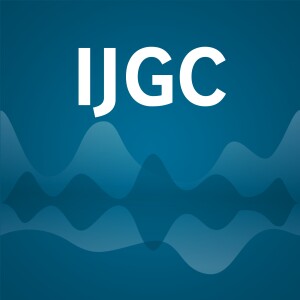
Monday Jul 31, 2023
Isolated Nodal Recurrence in Endometrial Cancer with Andrea Mariani and Ilaria Capasso
In this episode of the IJGC podcast, Editor-in-Chief Dr. Pedro Ramirez is joined by Drs. Andrea Mariani and Ilaria Capasso to discuss isolated nodal recurrence in endometrial cancer. Dr. Mariani is a Full Professor in the Department of Obstetrics and Gynecology, Division of Gynecologic Surgery, at Mayo Clinic in Rochester, Minnesota. He is the Gynecologic Oncology Division Chair in the Department of Obstetrics and Gynecology. Dr. Mariani’s research interest is endometrial cancer with a special interest in robotic surgery. He is internationally recognized for his contributions in the advancement of surgical and postoperative treatment of endometrial cancer. Since 2019, Dr. Capasso has been employed as an OBGYN Resident at Fondazione Policlinico Agostino Gemelli (Rome, Italy), where she mainly works in the Gynecologic Oncology Unit, with a special focus on clinical and translational research in endometrial cancer. Between May 2022 and May 2023, she held the position of Visiting Research Fellow at Mayo Clinic (Rochester, MN, US), where she led clinical and translational research projects mainly related to AI, microbiome, and ctDNA in endometrial cancer. She currently holds the position of Research Collaborator at Mayo Clinic (Rochester, MN, US).
Highlights:
- This study aimed to analyze the clinicopathological features and outcomes of patients with endometrial cancer who experienced isolated lymphatic recurrence after lymphadenectomy, categorized by different recurrence sites and treatment approaches.
- The researchers retrospectively reviewed surgically treated endometrial cancer patients and identified 66 women (1.6%) with isolated lymphatic recurrence.
- The overall median cause-specific survival for these patients was 24 months. Survival outcomes were not significantly different among the four isolated lymphatic recurrence groups, although patients with recurrence in the para-aortic area showed better long-term survival rates higher rates of long-term survivors (patients who survived more than 5 years after the recurrence).
- Factors associated with improved cause-specific survival included low-grade histology and the absence of lymphovascular space invasion in the primary tumor.
- Moreover, patients who underwent surgical treatment with/without other associated treatments for isolated lymphatic recurrence exhibited better cause-specific survival compared to those who did not undergo surgery, even after adjusting for age.